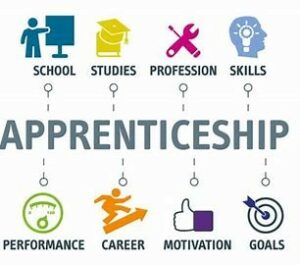Natalia Samodina, Client Legal Director at the law firm The Legal Director, explores five pressing workforce challenges.

In an industry grappling with rising input costs, supply chain disruptions, and uncertain consumer demand, labour challenges have taken centre stage. Employment costs are increasing, legal obligations are shifting, and workforce models that once seemed stable are under strain.
The British furniture and homeware sector, known for its craftsmanship and resilience, must now become fluent in a new core skill: AGILITY. Adjusting workforce strategies to meet financial, regulatory, and technological pressures is no longer optional.
This article outlines five pressing workforce challenges, from statutory wage hikes and employment law reforms to the subtle but significant impact of AI on jobs. We explore each issue from both employer and employee perspectives and offer practical steps for navigating the landscape.
- MINIMUM WAGE & NATIONAL INSURANCE
The government’s recent minimum wage increase aimed to help workers amid rising costs for essentials like rent, energy, and mortgages. However, warnings from industry bodies, such as the British Retail Consortium, are materialising. Coupled with National Insurance Contribution (NIC) hikes, employers are facing mounting pressures.
According to Make UK and BDO’s Q1 2025 Manufacturing Outlook, the sector is forecast to contract by 0.5%, revised down from –0.2%, directly tied to rising employment costs.
The ONS June 2025 labour report found:
- 274,000 fewer payrolled employees year-on-year, with retail and manufacturing hit hardest; and
- 63,000 drop in job vacancies, marking the 35th consecutive quarterly decline.
Consequences are evident with some furniture businesses reducing staff, retailers freezing recruitment or shortening store hours and workers, particularly in areas with few alternative employers, are feeling the impact.
While there’s no simple fix, cumulative efforts may help:
- claiming the available NIC employer allowance (up to £10,500 for 2025/26);
- cross-training staff rather than expanding or downsizing;
- leveraging 3D modelling and, where feasible, VR to showcase collections without large physical footprints;
- exploring non-payroll cost savings, including (1) showroom sharing and collaborative retail spaces (e.g., The Range x Kitchens by Homebase), (2) bulk-buying and shared logistics; and (3) energy efficiency upgrades in high-usage areas like showrooms and warehouses.

- THE UNDER-UTILISED YOUNGER WORKFORCE
The sector leans heavily on experienced, often retirement-age employees. While invaluable, this workforce is costly, and skills gaps, especially in upholstery, joinery and CAD, are slowing growth.
Without a pipeline of trained young talent, businesses risk outsourcing craftsmanship or relying on contractors. Yet many remain unaware of the DfE’s £3 billion funding for 2025–26, which supports Level 2–3 roles and youth employment in construction and manufacturing.
New rules effective 1 August 2025 offer key benefits:
- up to £2,000 incentives and £666 progression bonuses for foundational apprenticeships;
- shorter programme duration (from 12 to 8 months) for seasonal or project-based roles; and
- levy transfers for employers with payrolls under £3 million with no contribution required.
An apprenticeship strategy can be a valuable untapped resource that can support:
- succession planning by cultivating skilled younger staff;
- brand integrity through in-house craftsmanship;
- sustainability goals via training in circular design and refurbishment; and
- improved retention as apprentices often stay loyal to their training employers.
And for apprentices? The experience offers more than a job. It fosters confidence, discipline, transferrable skills and economic family contribution — with long-term psychological and social benefits.
- EMPLOYMENT RIGHTS BILL 2024: A NEW ERA OF OBLIGATIONS
The Employment Rights Bill 2024 brings sweeping changes to UK workplace regulations. While its effects apply broadly, small and micro businesses will bear disproportionately high administrative and compliance costs.
In the sector with seasonal staffing and lean HR models, the reforms introduce real financial pressure.
Key changes and estimated timeline:
- statutory sick pay reform (April 2026) eliminates lower earnings limit and the 3-day wait, extending coverage to circa 1.3 million workers;
- day-one rights (April 2026), including unpaid parental leave and paternity leave, will kick in from the first day of employment; and
- zero-hours reform & unfair dismissal protections (2027) will require guaranteed hours for regular schedules and full dismissal procedures from day one.
Delayed preparation could cause fragmented HR processes, legal exposure, and operational disruptions. For micro businesses, this risk is especially acute.
The following timely steps are recommended in order to prepare the business for compliance and plan financially:
- conduct compliance reviews in line with rollout dates;
- update contracts and handbooks to reflect new rights;
- train HR teams on dismissal law, flexible working and scheduling; and
- budget for enhanced sick pay and leave costs.
Employees, meanwhile, should familiarise themselves with upcoming rights and maintain open dialogue with HR teams.

- SELF-EMPLOYED AGENTS: CASHFLOW STRAIN & MOTIVATION GAPS
Self-employed sales agents remain vital in furniture and homeware, offering low overheads and flexibility. Yet amid economic uncertainty, issues around commission, payments and reporting transparency are growing.
When agents feel undervalued or poorly compensated, brand loyalty falters. Disengagement, misaligned focus and reputational damage can follow, particularly in close-knit trade communities such as English furniture.
To maintain trust and protect the business:
- ensure agency contracts are clear in outlining commissions, performance metrics, and termination rights;
- introduce regular commission cycles (monthly or bi-monthly) to signal reliability; and
- verify that agents qualify as genuinely self-employed as misclassification risks financial liability.
Supporting agents through consistent policies is more than goodwill. It is strategic.
- AI & AUTOMATION: BALANCING INNOVATION WITH ETHICS
AI is transforming furniture design, production and sales. Companies like IKEA, Sofology, and Juliette Interiors use AI to generate bespoke concepts later refined by artisans. Chatbots are replacing call centres.
While AI brings efficiency, it also raises concerns about displaced jobs. The Institute for Public Research Policy’s 2024 report estimated that up to 8 million UK entry-level roles could be lost to AI.
Navigating this shift requires ethical foresight. To strike the right balance in the immediate term to reap the benefits long-term, businesses should focus on:
- using AI to enhance, not replace, human creativity;
- cross-training employees to multiply their skill set, increase productivity and help them stay relevant; and
- engaging in developing ethical standards and policies around AI adoption.
Done thoughtfully, AI can complement craftsmanship rather than compromise it.
CONCLUSION
Workforce resilience in the furniture and homeware industry is facing a perfect storm: policy shifts, economic strain and technological disruption. But agility, awareness and long-term strategic planning offer a path forward.
From understanding apprenticeship incentives and compliance timelines to strengthening agency relationships and using AI responsibly, businesses can remain competitive while keeping people at the centre.
This article does not constitute legal advice. For tailored advice on workforce resilience and costs optimisation, contact Natalia Samodina at natalia.samodina@thelegaldirector.co.uk.















